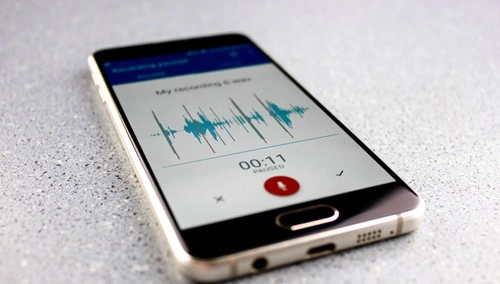Yes, it is illegal to record a conversation in Florida without the consent of all parties involved. Florida is an all-party consent state under Florida Statutes Section 934.03, meaning every participant in a private conversation must agree to its recording. Violating this law can result in both criminal penalties and civil liabilities.
Understanding Florida’s Recording Laws
Florida’s strict recording laws aim to protect individuals’ privacy and ensure that private conversations are not secretly recorded. These laws apply to all forms of communication, including in-person discussions, phone calls, and electronic communications.
1. All-Party Consent Requirement
- Florida requires the consent of all parties involved in a private conversation before it can be recorded.
- Failure to obtain consent from even one participant renders the recording illegal, regardless of the intent.
2. Definition of Private Conversations
A conversation is considered private if at least one participant has a reasonable expectation of privacy. For example:
- Private Settings: Conversations in homes, offices, or phone calls are typically deemed private.
- Public Settings: Discussions in public places without an expectation of privacy, such as a loud conversation in a park, may not fall under this law.
3. Types of Communication Covered
Florida’s law applies to various forms of communication:
- In-person conversations.
- Telephone and VoIP calls.
- Video calls or conferences with audio.
- Electronic communications with audio, such as apps or messaging platforms.
Penalties for Illegal Recording in Florida
Recording a conversation without obtaining the required consent can lead to serious consequences:
1. Criminal Penalties
- Felony Charges: Violating Florida’s recording laws is generally classified as a third-degree felony.
- Penalties include up to 5 years in prison and fines of up to $5,000.
- Aggravated Offenses: Using the recording for harmful purposes, such as blackmail or defamation, may lead to enhanced charges.
2. Civil Liability
- Victims of illegal recording can file lawsuits for damages, including:
- Actual Damages: Compensation for harm caused by the recording.
- Statutory Damages: Up to $10,000 per violation.
- Attorney’s Fees: Reimbursement for legal expenses.
Exceptions to the Rule
While Florida law is strict, there are some exceptions where recording may be permitted without all-party consent:
1. Public Conversations
Recording is allowed in public settings where there is no reasonable expectation of privacy. For instance, recording a conversation at a public rally or loud restaurant may not violate the law.
2. Law Enforcement
Police and other law enforcement officials may record conversations during investigations, provided they follow proper legal procedures, such as obtaining a warrant.
3. Emergency or Crime Prevention
Recording may be permissible if it is done to document or prevent a crime, although this must be carefully justified.
Recent Legal Developments
1. Digital Privacy Concerns
The rise of smart devices like Amazon Alexa and Ring cameras has raised questions about inadvertent recordings. Florida courts have clarified that such devices must comply with all-party consent laws when capturing private conversations.
2. Workplace Monitoring
Employers in Florida are generally prohibited from secretly recording employees’ conversations without consent. Notice must be provided for workplace monitoring to comply with privacy laws.
3. Social Media and Sharing
Recent cases highlight the legal risks of sharing illegally recorded conversations online. In some instances, courts have added additional penalties for defamation or invasion of privacy.
How to Legally Record Conversations in Florida
- Obtain Consent: Secure explicit permission from all parties before recording.
- Document Consent: Record verbal consent at the start of the conversation or obtain written agreement.
- Avoid Secret Recordings: Use visible recording devices and inform participants.
- Understand the Setting: Ensure the conversation does not occur in a setting where privacy is expected.
Related FAQs
Q1. Can I record a phone call in Florida without the other person knowing?
Ans: No, you must have the consent of all parties involved in the phone call.
Q2. Is it illegal to record a public conversation in Florida?
Ans: No, recording public conversations where there is no expectation of privacy is generally legal.
Q3. Can employers record workplace conversations in Florida?
Ans: Employers must notify employees or obtain consent before recording workplace conversations.
Q4. What happens if someone records me without my consent?
Ans: You may file a criminal complaint or pursue a civil lawsuit for damages under Florida law.
Q5. Are there exceptions for journalists or whistleblowers?
Ans: Florida’s all-party consent law applies to everyone, including journalists and whistleblowers, unless the recording documents criminal activity or occurs in a public setting.


